

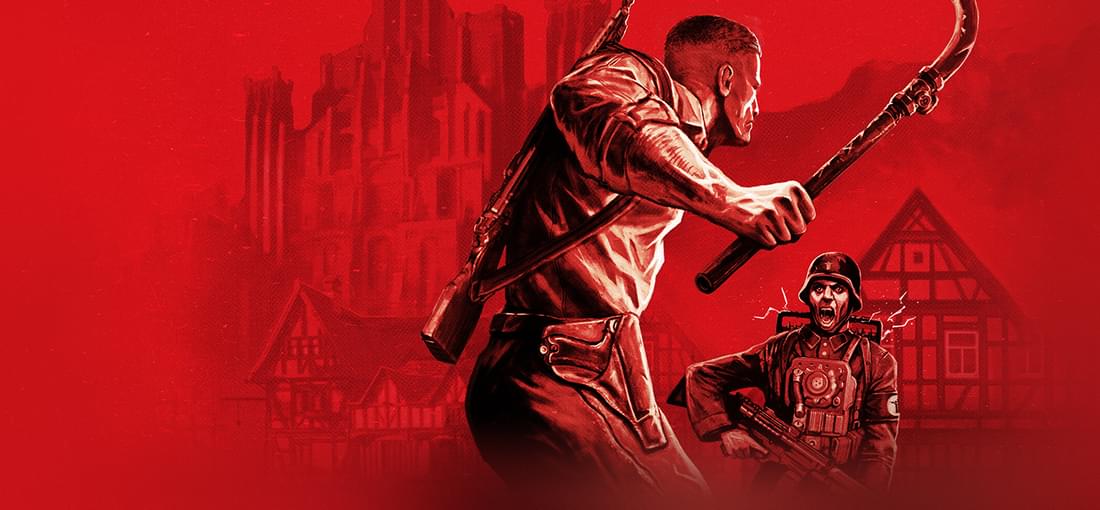
If you're wondering what order to play the Wolfenstein games, you would probably get the most complete experience starting with RtCW, then the 2009 game, then this, then New Order, then finally New Colossus. The way the games connect may be a little haphazard, but there is a throughline all the same. If you would prefer to just start with the newer titles... then start here. Old Blood may be a bit on the shorter side, but it has possibly the best gunplay in the entire series. Though only a minor improvement on the excellent combat of New Order, it's an improvement all the same; and it's polished to a mirror shine. Every gun feels powerful, every encounter feels intense, and the perks encourage you to find new ways to play instead of clinging to a single favorite. The story is there for fans of The New Order; or for new players who want a prologue before the main course. It's not deeply involved, but it contains plenty of lore and worldbuilding that is paid off handsomely in The New Order. The game is also dripping in atmosphere, and boasts a cinematic aesthetic that still looks gorgeous even to this day. That being said, $20 is a little steep considering the game's short length. I suggest you wishlist the series and wait for a sale. They get pretty cheap when the price drops, and you'll be glad you waited.
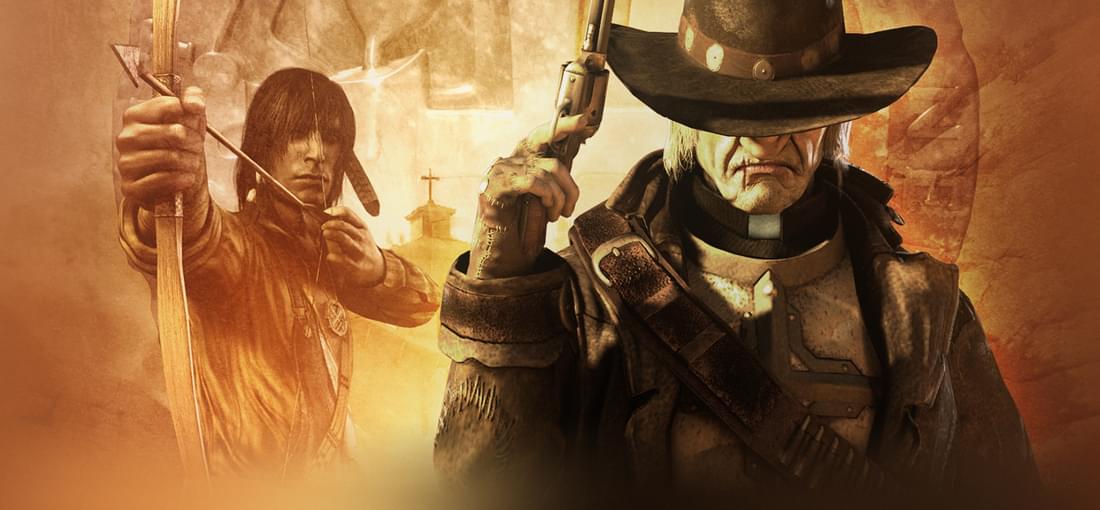
This game might not be as "mainstream" as its sequels, but it's no less worth playing if you're in the mood for a slightly janky quicksave shooter. Ironically though, I would recommend playing Bound in Blood (the prequel) first if you haven't already. It sets up the story for the original quite well
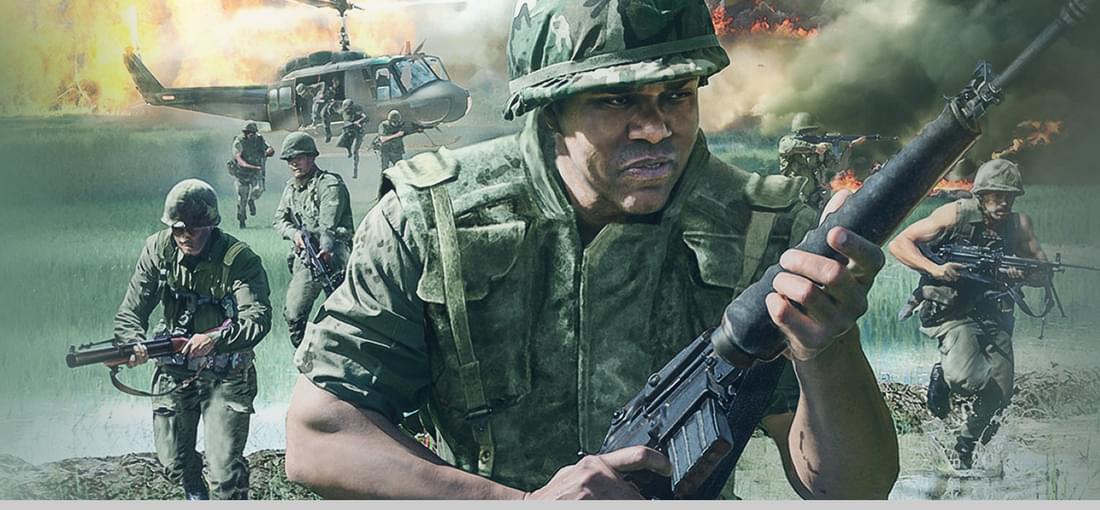
I wanted to give this game every benefit of the doubt, since not only do I love the setting, but it's from the same dev team as the legendary Medal of Honor: Allied Assault. How the mighty have fallen. First, the obvious problem. Calling Men of Valor "too hard" is like calling Russian Roulette "a bit risky." There are games with cheap deaths, and then there's this: a game whose EASY difficulty still affords you less health than CoD on Veteran. A game that ties all resources to looting enemies... but despawns their corpses after only a few seconds on the ground, taking all their items with them. A game with random weapon spreads and item drops, which means your run can turn completely sideways with a single unfortunate burst. A game that will sometimes put a full 30 minutes of dense firefights between checkpoints... and has no way to manual save. A game that wants to be a slow-paced, tactical shooter, but forces you to charge into infinitely respawning enemies to trigger arbitrary events before it allows you to progress. A game that, even if you want to power through all the other BS just to see the storyline, will still randomly fail to trigger crucial events, leaving you with no other choice than to reload your last checkpoint. This game was designed, and tested, very badly. Every concept it has that might have made it an interesting shooter is completely undermined by a conflicting idea that belongs in a completely different game. You like the setting? Play Vietcong instead. You like slow-paced, intense shooters? See above. You got it on sale and you're stuck with it now? Press Tab and type in "Dinkydau". God mode. The game's already utterly broken on the design end. You aren't doing anything wrong by breaking it on your end. The game may not be, per se, "impossible," but it is so frustrating both in its intentional design and broken gameplay that it may as well be. The art is pretty though, so I guess one of the devs bothered to show up to work.
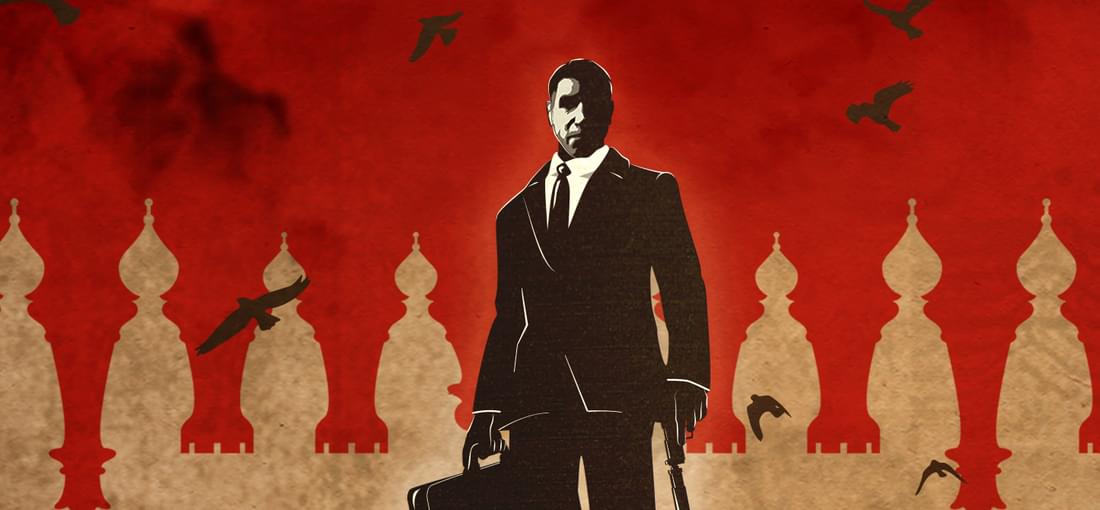
With how hard this game was dragged through the mud at release, I booted up Alekhine's Gun expecting to fall through floors and get stuck in bugged geometry. Instead, I found a genuinely fine, albeit budget stealth title with a heartwarming spy story. The flaws in this game, while noticeable, aren't enough to make you not enjoy your time playing it. However, I must insist that you do two things before you play this game: 1. Wait for a sale. Alekhine's Gun frequently dips down to the $2 range during GOG/Steam sales, and you will be glad you saved the money. 2. Download and install the fan patch, which includes new voice acting for NPCs, and a host of other bug fixes. The fans were passionate about this game, and their hard work should be recognized.
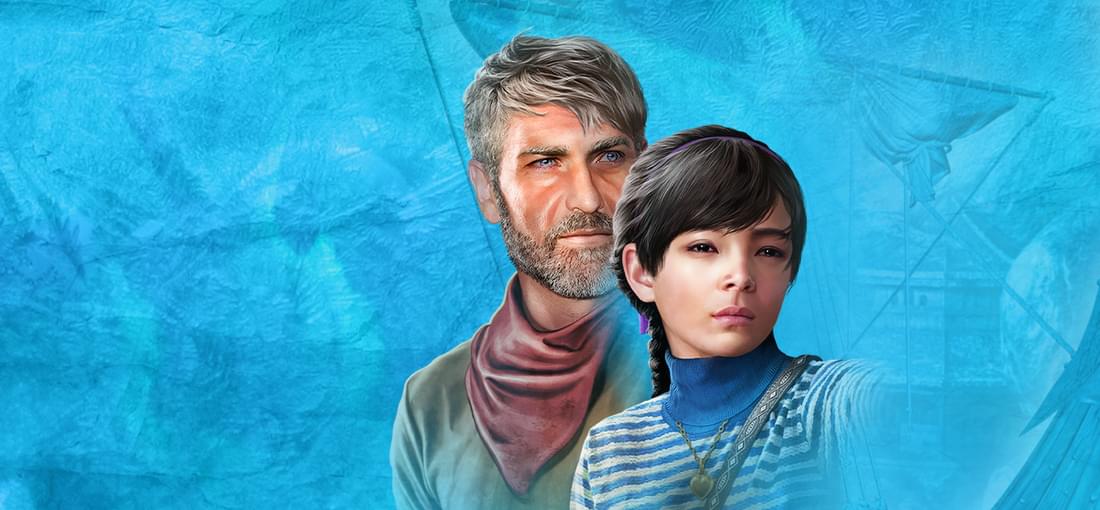
To beat a dead horse real quick, yes, the graphics are bad. It looks like a 2007 game, even though it came out in 2015. That said, I happen to like 2007 games, so let's get into what actually matters. It's a point and click adventure game, and as such, the puzzles are... good. Arguably just as clever as they were in the first game at times, even if the runtime is far shorter. There's also a single QTE section near the beginning of the game, but it's short and unobstrusive. From a gameplay perspective, it has what you expect in the genre. No more, no less. And like the first game, you still get to go on a globe-trotting adventure through various Cold War settings, although sometimes it feels like we're just being shoved through each location in pursuit of the next. Remember how the first game took you to Berlin, and there were like 30 puzzles to solve? Well, in the sequel we go to Moscow, and solve a grand total of *one* puzzle. Yes, only one. In Soviet Moscow, which should be the big setpiece of any game set in the Cold War. One puzzle. It's a good puzzle, but it's the only one you solve before you leave. The entire game has this feel to it. You feel like there should have been more to explore in each region, instead of just coasting from place to place. None of this is helped by a storyline that seems to have forgotten to have any sort of tone whatsoever. LH1 had a fantastic blend of humor and adventure, and while *I think* LH2 wanted to do something more serious, it doesn't really show in the final product. The dialogue is lifeless, and characters only ever have simple motivations for anything they do. If the writers didn't want to retread old ground, that's fine. You can still see inklings of a much darker tone that could have worked really well, if they had stuck to it. Instead, the tone gets stuck in this murky abyss that doesn't feel dark, or light, or funny, or sad, and barely even adventurous. Obviously, this game was unfinished. And it shows.
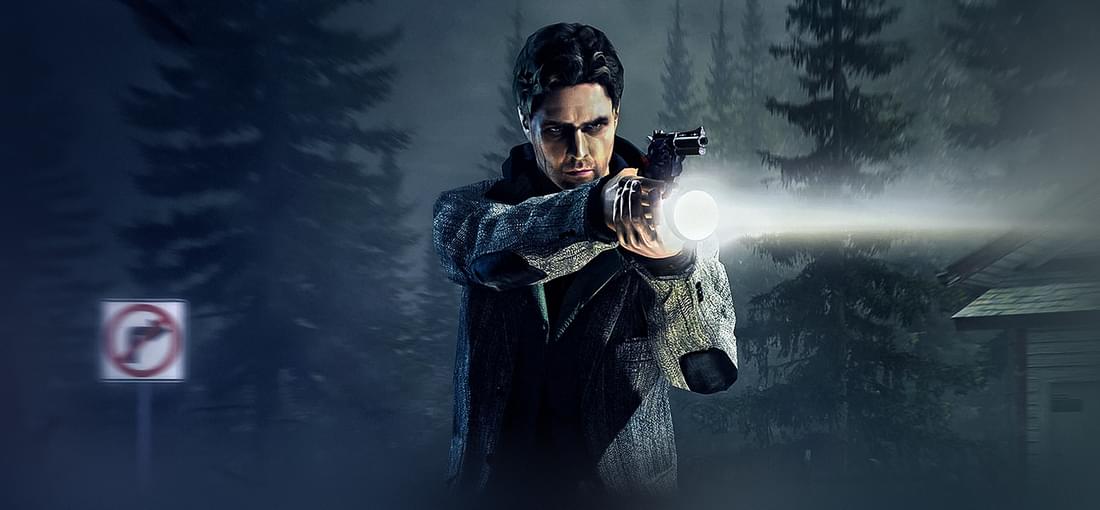
2 stars because you can still see the ghost of a good game in here. The combat system, at least at first, has a definite rhythm to it. Early encounters are intense and fulfilling, and the plot is engaging until you reach the second chapter and the twist becomes too obvious to ignore. The rest of the game, however, is a Sisyphean slog unlike anything else I've ever seen. Every two hour long level has the exact same environment, the exact same enemies, the exact same weapons, and the exact same collectibles. The developers looked at the very first encounter in the game, decided they didn't need to do anything to keep it interesting, and just remade it over and over again for the game's entire 15+ hour run. Any breaks from the unbelievably monotonous combat last at most 15 minutes. At the start of every chapter, you get a short story beat, then get thrust right back into combat with all of your previous weapons and items removed. Puzzles are so simple that a child could figure them out, and don't even serve to break up the monotony since you need to face a horde of enemies while you solve them. The storyline is an interesting attempt at a metanarrative. But once you realize this, it has nothing more to offer in terms of surprise or satisfaction. You can guess the twist in the first two chapters; or the third, if you're particularly dense. The foreshadowing is laid on thicker than the la brea tar pits, and it stops making any semblance of sense the moment you think about the implications of what's going on. Without spoiling too much, a certain character had all the opportunity and motive to stop the bad stuff from happening, but let it happen anyway for no good reason. The entire plot hinges on this, and the game just tries to handwave it and hope you won't think about it. There are plenty of good games with bad stories, but when a game tries to dangle a bad story in front of your face as justification for bad gameplay, it just feels insulting.
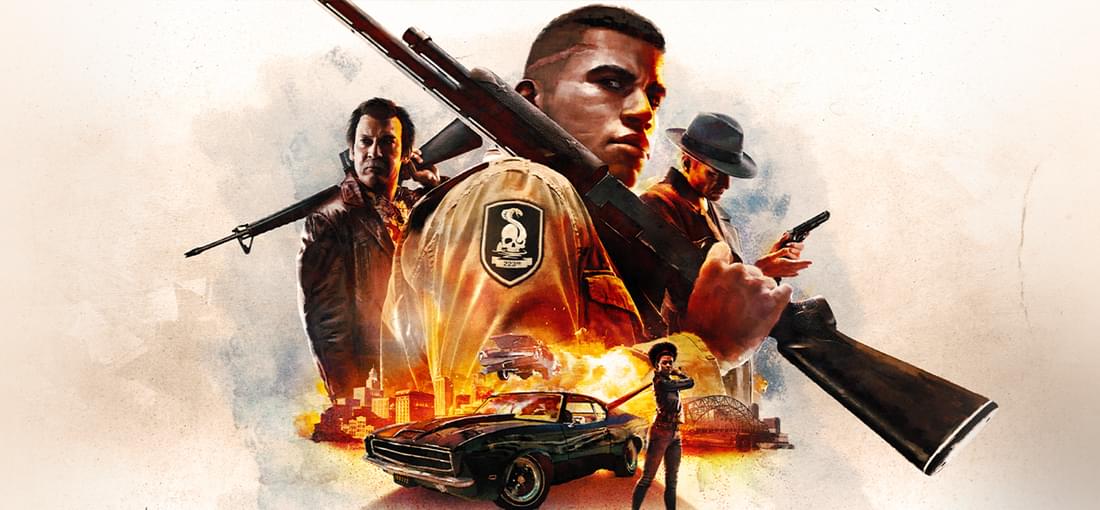
I recommend this game to a somewhat specific player. If you enjoy Ubisoft-type games that give you a vast open world and ask you to take it over piece by piece, this is the game you've been waiting for. Perhaps this is too much of a deviation from the more linear stories of previous Mafia games; but for the genre, this is the ideal way to handle a large city in a video game. As you capture each district, you can see the world change around you. You unlock new safe zones, you can upgrade your cars and weapons, and friendly NPCs start spawning around the city. It's a very satisfying way to indicate progression, and it's part of what drives me to these types of games. New Bordeaux itself is absolutely gorgeous. Every district has a unique flavor in its architecture and demographics, from modern 20th century suburbs in Frisco Fields, to the urban decay of River Row, to the historic Antebellum architecture of the French Ward. It's a gritty, but beautiful place that you want to spend more time exploring. The actual combat is tight and fun. There's no cheap tricks or overly tanky enemies, not even on hard mode. Challenge comes from numbers, positioning, and each enemy's different role in combat. It can be pretty difficult sometimes, but it's never unfair. When you lose, you always have a clear idea of what you did wrong, and what you should do next time, or even how you could have *avoided* combat altogether. The soundtrack deserves the highest grade imaginable. Dozens of incredible 1960s tracks covering every genre you could want to listen to. I've found myself singing (not *humming*) tracks from Mafia 3 on several occasions, because they're just that catchy. There's nothing quite like "King of the Road" coming on as you driving a semi truck through the Bayou, and you hum along as you drive. I didn't mentioned the story, because you already know it's good. Everyone has already told you the story is great. I wanted to sell you on the fantastic game surrounding it.
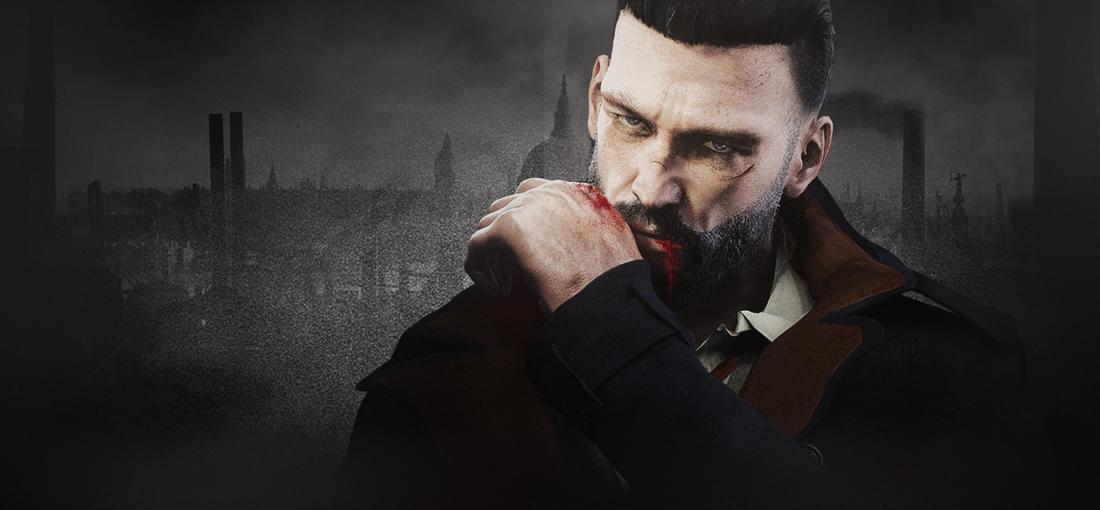
It's not a true immersive sim, nor a true soulslike, but it has elements of both and seems indecisive as to which it wants to be. Because it can be difficult to understand what this game really is, let me explain. Vampyr is a dark, open world RPG with soulslite combat and a very deep web of NPC relationships. You can freely explore a decent chunk of 1918 London, which is populated with challenging enemies along with dozens of civilians. All of these civilians have very deep conversation trees, and most offer sidequests. You are also free to feed on these civilians for a large XP boost. Alternatively, you can keep them healthy by offering them medicine, which makes the streets safer, and you can do their sidequests for a smaller, but still useful XP boost. During the story, you will be asked to make decisions that have wide-ranging effects on the game world, and can even cause districts to fall into chaos (quite literally) overnight. Great care was taken by the developers to immerse the player in this world, but it is not an immersive sim. There is no true stealth system, nor any way to meaningfully interact with the environment. As you explore London, you will be forced to fight the same enemies time and time again; and the combat, to put it generously, is not for everyone. I don't enjoy Soulslikes. It's a subgenre built on frustration and mechanical precision. It's immersive and satisfying to some players, but most just find it annoying. Vampyr's combat borrows the mechanical precision of soulslikes, but also includes several anti-frustration features that would make an actual souls fan winge: XP is not dropped upon death, feeding on civilians will make you stupidly OP, and it even has an easy mode. Vampyr feels trapped in two different worlds, and can't really satisfy fans of either genre. Can't really recommend it unless the premise really sticks out to you as brilliant. I would have preferred a focused immersive sim without the soulslite combat.
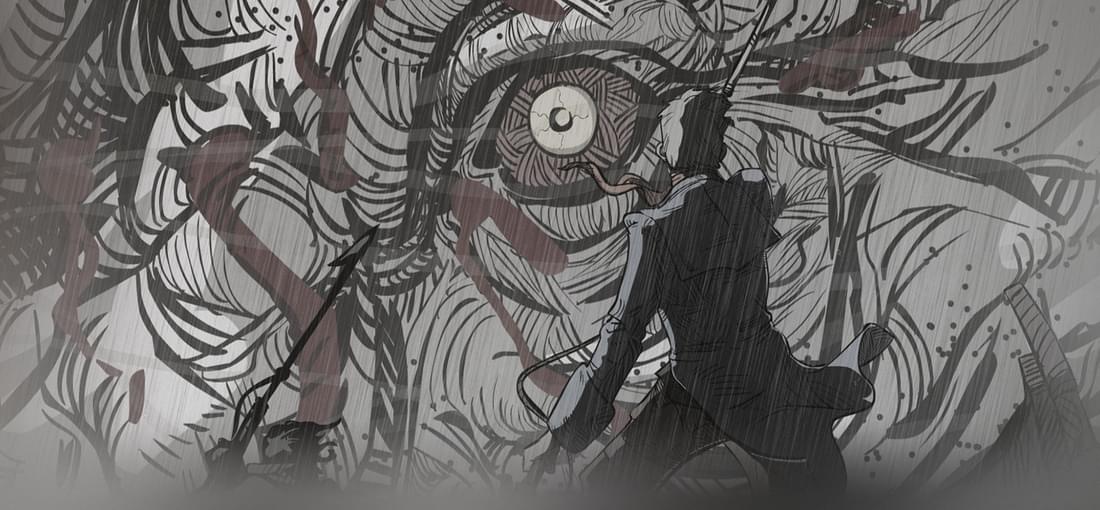
Great period details, artstyle, and RPG elements. Unfortunately, the actual combat system is RNG hell with no resemblance to actual whaling. While preparation does play a key role in the late game, the early game leaves you at the mercy of the dice as none of your crew have the necessary skills (or raw numbers) to put up a fair fight against the creatures of the sea. Not only do you play with incomplete dice, meaning if your die lands on an empty space, that character simply does not take a turn, but random effects frequently prevent you from taking a meaningful turn even if you do have good dice. You can mitigate this when you get more whaling boats, and bring on more crew to simply throw more dice at the problem. Eventually, the sheer weight of probability will need to weigh in your favor as you outnumber the enemy threefold. But at that point, it's less a strategy game and more of a whaling Zerg Rush. Then, you reach the final boss. A boss that has an innate effect that makes it immune to all forms of damage and all negative status effects. I wish I was making this up. The only way to get past it is to use a specific item on him... an item bound to one specific face of one specific character's combat die. This character can be stunned. This attack can miss randomly. This attack can be blocked by random effects you have no control over. The boss can enter a state where he can not even be targeted in the first place. You need to hit this specific item, then hit the boss with the item, then hit him with as much damage as you possibly can before... he gets the status back and heals himself. You need to hit this item at least twice in the same encounter to win, assuming everything else goes perfectly. If you still think this game is worth your time, go nuts. Otherwise, you're better off buying lotto tickets. There once was a game called Nantucket. The combat you just had to luck it. Through sheer force of will and too much Advil I threw all my dice in a bucket.
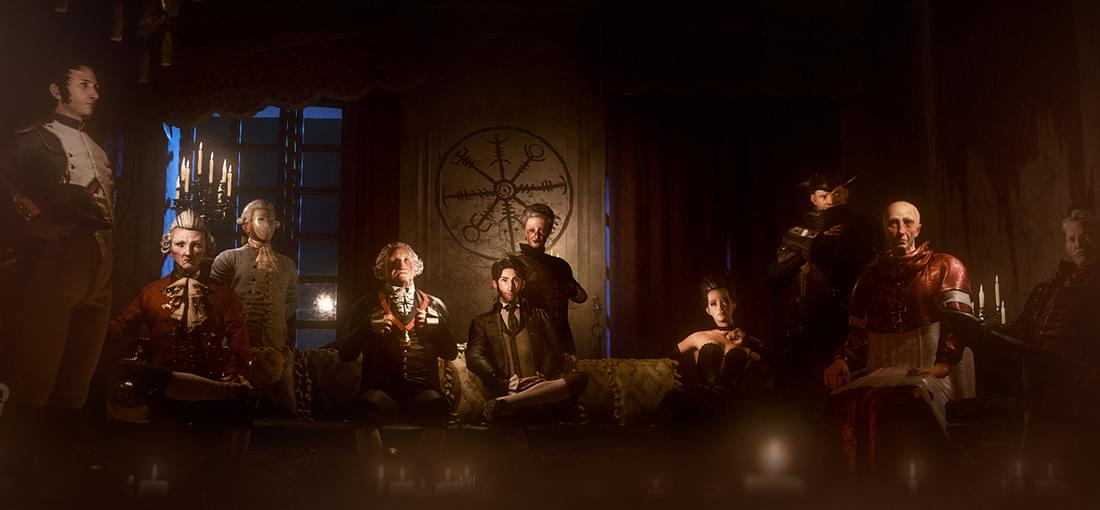
I'm normally not a fan of "narrative" games, since they're often extremely linear, very light on gameplay, and don't do anything that any other genre can't. The Council is very different. While still fairly linear, its reliance on RPG mechanics and depth of consequence make the dialogue system feel much more intense than its contemporaries. You can easily screw things up for good, and end up horribly maimed, or lose vital items and allies that you'll need later on. It's a long chain of intrigue and esoterica connected by clever writing and engaging characters, and punctuated by some of the most clever puzzles I've ever seen.